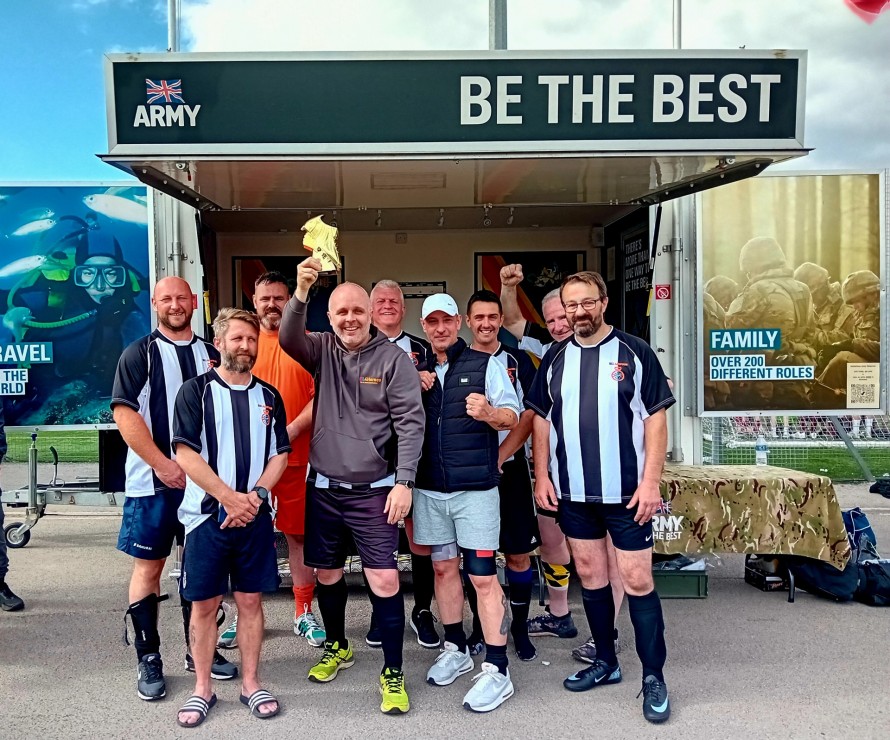


In a heartfelt conversation with Marc Ireland from NEL4Heroes, we explored how community-led interventions are making a life-saving difference for veterans navigating vulnerability, isolation, and mental health challenges — particularly during the winter months. Through early intervention, peer support, and the strategic use of physical activity, NEL4Heroes is helping veterans stay connected, resilient, and well.
Early Intervention: Reaching Veterans Before Crisis Hits
NEL4Heroes supports veterans across North East Lincolnshire, offering support that begins the moment someone is identified as being at risk. Whether it is a veteran struggling with the transition to civilian life or a family member in need, the team doesn’t wait for them to reach out—they go to them.
This proactive approach is central to adult safeguarding. By collaborating with Citizens Advice and NHS partners, NEL4Heroes builds a wraparound system of care. The charity engages in a range of activities to promote its services, attending football matches, giving interviews to local newspapers, and using social media to connect with veterans and their families.
Vulnerability Across the Life Course
Much of NEL4Heroes’ prevention work focuses on helping veterans navigate life transitions and recognise early signs of vulnerability.
“The vulnerabilities we see vary by age. Younger veterans often struggle with the transition from a disciplined military environment to civilian life — even simple things like paying council tax can be overwhelming. For older veterans, it’s often about isolation, especially in winter. Some won’t turn on the heating because they are worried about costs, and they end up self-isolating.”
NEL4Heroes responds with practical support—warm packs, benefits advice, and community engagement. This approach is especially crucial during the colder months when isolation and financial stress can intensify.
“Christmas is a particularly tough time. Isolation increases, and mental health can spiral. We [NEL4Heroes] hold out a hand to help them pick themselves back up, its massively important.”
Peer Support and Small Steps
“Trust is massive. You build it in small steps—just like progress.”
Trust is the currency of prevention—and peer support is often the quickest way to earn it. When veterans engage in physical activity together, it becomes a natural setting for conversation, connection, and confidence-building.
Marc tells us that veterans often feel more comfortable with someone who understands the culture, uses the same shorthand, and recognises the weight and humour of service life. It reduces the friction of asking for help, accelerates engagement, and creates a bridge of trust that other services can then build on.
Movement as a tool for Prevention and Recovery
In the prevention toolkit, physical activity is a quiet powerhouse. It is more than fitness; it is structure, social contact, and mood regulation—a way to puncture isolation and reset the day. Marc highlights that for veterans, physical activity is a huge part of their collective identity, offering a way to reconnect and reset.
“It’s always a positive thing when you leave the gym…the endorphins are flowing so you feel good…, and for us [veterans], physical activity and fitness is engrained in who we are.”
NEL4Heroes has successfully integrated physical activity into its safeguarding model. One example is the Boxercise sessions which ran on Sundays and saw strong uptake from the veteran community.
Marc explains:
As part of an Active Partnership [Active Humber], we recognise the power of movement to support mental health, reduce isolation, and build resilience—especially in communities facing complex challenges. In safeguarding contexts, physical activity is a protective factor that helps veterans stay visible, regulated, and socially connected.
Final Message: Community as a Lifeline
The work of NEL4Heroes shows us that safeguarding is not just about responding to crisis—it is about preventing it through connection, trust, and movement. Physical activity is not an add-on to their support model; it is a core intervention that helps veterans stay mentally well, socially connected, and emotionally resilient.
As winter approaches, NEL4Heroes hopes to secure further funding to expand its physical activity offer and ensure its prevention hub can reach even more veterans in need.
“You recognised it, you felt it, and you pulled yourself out—one small step at a time.”
Whether through a walk, a workout, or a peer-led session, movement is helping veterans hold the line—and reminding us all that safeguarding starts with showing up.